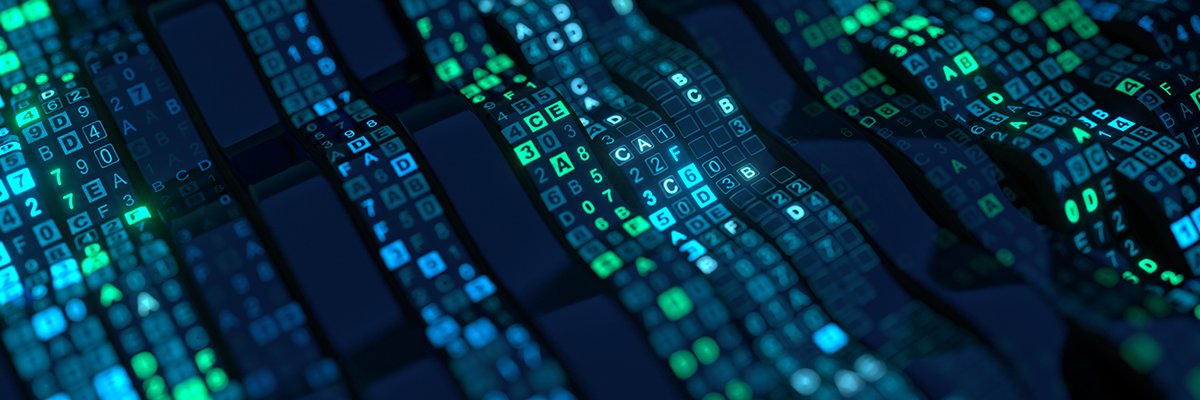European governments are increasingly turning towards open standards alternatives to end-to-end encrypted messaging and collaboration services dominated by WhatsApp and Microsoft Teams.
An open network messaging architecture, known as Matrix, is attracting interest from European governments that are seeking “sovereign” alternatives to encrypted collaboration and messaging tools supplied by US Big Tech companies.
Matrix aims to create an open standard for messaging, that would allow people to communicate irrespective of which messaging service they use, in much the same way that people can send emails to anyone irrespective of which email provider they use.
The German armed forces and the French government each have hundreds of thousands of government employees using messaging technology based on Matrix.
Swiss Post has used the technology to build an encrypted messaging service for postal users, and other projects are underway in Sweden, the European Commission and the Netherlands.
Matthew Hodgson co-founded Matrix as a not-for-profit open source project to develop technical standards for secure decentralised messaging, video and voice services in 2014.
When he is not working for Matrix, Hodgson is the CEO of Element, which provides encrypted communications services based on the Matrix protocol, to France, Nato and other government organisations.
Risk of US sanctions
He says European governments have shown increasing interest in using open source IT as a way of reducing their dependence on US Big Tech suppliers and creating their own sovereign alternatives in the wake of increasing geopolitical uncertainty.
The decision by the US to impose sanctions on the International Criminal Court (ICC) in the Hague in February 2025, showed that sovereign states can no longer assume that cloud-based IT services supplied by Microsoft and other Big Tech companies are immune from world politics.
The sanctions impacted US suppliers that provide the court with “financial, material, or technological support,” prompting the ICC – which is heavily reliant on Microsoft – to seek to negotiate new IT contracts with other non-US suppliers.
“We have seen first-hand that US Big Tech companies are not reliable partners and out of common sense, for your country to be operationally dependent on another country is a crazy risk,” said Hodgson.
The “Signalgate” scandal was also a “huge wake-up call”. In April, it emerged that US national security advisor Mike Waltz inadvertently added a journalist to a classified group discussion on a Signal-based messaging service.
The incident led to renewed concerns about the proliferation of shadow communications technology among governments.
Encryption double-think
However, the same European governments that are advocating developing sovereign encrypted messaging services are also resisting the spread of end-to-end encryption.
This is happening through mechanisms like Chat Control, a European proposal to require technology companies to scan messages for illegal content before being encrypted, which has the unintended consequence of undermining the security of communications.
“There are obviously different factions and governments pushing in different directions,” said Hodgson. “I think Chat Control comes from a curious combination of ignorance and political gamesmanship, trying to score points.”
“My hope is that we will end up in a big, global peer-to-peer network without servers that cannot be compromised, undermined, surveilled or otherwise disrupted”
Matthew Hodgson, Element
In the UK, the Home Office has required Apple to give law enforcement and the intelligence services the capability to access the encrypted data that UK citizens have backed-up on Apple’s iCloud service.
Hodgson says that if the Home Office issues a similar order against Element, it would have no choice but to withdraw its services from the UK, or from Europe, if Chat Control was ever introduced.
The result would not be the disappearance of encrypted messaging apps, says Hodgson, but more likely a proliferation of home-grown encryption apps as people seek ways to maintain their privacy.
Look back to the crypto wars of the 1990s, when the US government sought to control and limit the spread of encryption technology – those efforts were thwarted by Phil Zimmerman who developed PGP encryption software.
Although it was technically illegal to distribute PGP, “mysteriously,” said Hodgson, “everyone was using it”.
“Even if Element was unable to publish apps in the app stores of European countries because of Chat Control, I strongly suspect that many other people will go and publish their own apps and make them available somehow,” he added.
No single point of attack
One of Matrix’s advantages as a communications standard is that it is decentralised. That means there is no single point of attack that would allow hackers to gain access to the whole network.
Hodgson contrasts that with Signal, an encrypted messaging service widely used by journalists and human rights campaigners, which presents a bigger target for hackers.
“Signal has very good encryption, and we use their encryption so we owe a lot to them,” he said. “On the flip side, if you are a motivated bad actor, with Signal there is only one app and one instance that you have to compromise.”
Another advantage of Matrix is that is interoperable, which means that one messaging platform built on Matrix, should have the capability to communicate with another.
With Nato deploying Matrix-based communications, for example, it would make sense for Nato forces to use encrypted Matrix-based messengers to communicate with each other.
France and Germany are understood to be in discussions about enabling messaging between the two countries.
Matrix ‘at least as good’ as WhatsApp
Apps built on Matrix have been less slick and less easy to set up than alternatives such as Signal and WhatsApp but that is beginning to change. Hodgson says there are a bunch of “really mature glossy apps” that are at least as good.
It’s taken longer to get there because taking a decentralised approach is always more difficult than a centralised approach – at least 10 times harder, he says.
Funding has also been an issue, as some governments deploying Matrix’s open networking protocol as part of critical national infrastructure have not opted to support Matrix financially.
Hodgson had assumed that as more governments and corporations started using Matrix there would be more money available for development.
Instead the funding often went to systems integrators hired by governments to deploy Matrix, rather than into Matrix itself.
Change of tack on fundraising
Element largely funded the development of Matrix up until 2023, but was forced to “aggressively change tack,” when the funds to support the protocol’s development failed to materialise.
Today Matrix relies on funding from a membership programme and is also looking at applying for grants while it grows its membership base.
“We are getting there now and I am hoping that in the next few months we will be out of the other side of that and really be able to start accelerating development again,” he said.
Hodgson’s philosophy is that features developed to empower users of Matrix should be made available free of charge, but features that empower enterprises should be paid for.
Paid services include antivirus, information classification labels, and measures to prevent the wrong people being accidently included into chats.
People can sign up for Matrix without setting up their own server, but deploying Matrix could become even simpler in the future. The Dutch government has agreed to fund the development of a peer-to-peer version of Matrix, that obviates the need for a server altogether.
In the meantime, work is underway with technology partners to deal with spam messages, AI slop and botnet produced propaganda, that have all grown as Matrix deployments have expanded.
“My hope is that we will end up in a big, global peer-to-peer network without servers that cannot be compromised, undermined, surveilled or otherwise disrupted,” said Hodgson.










